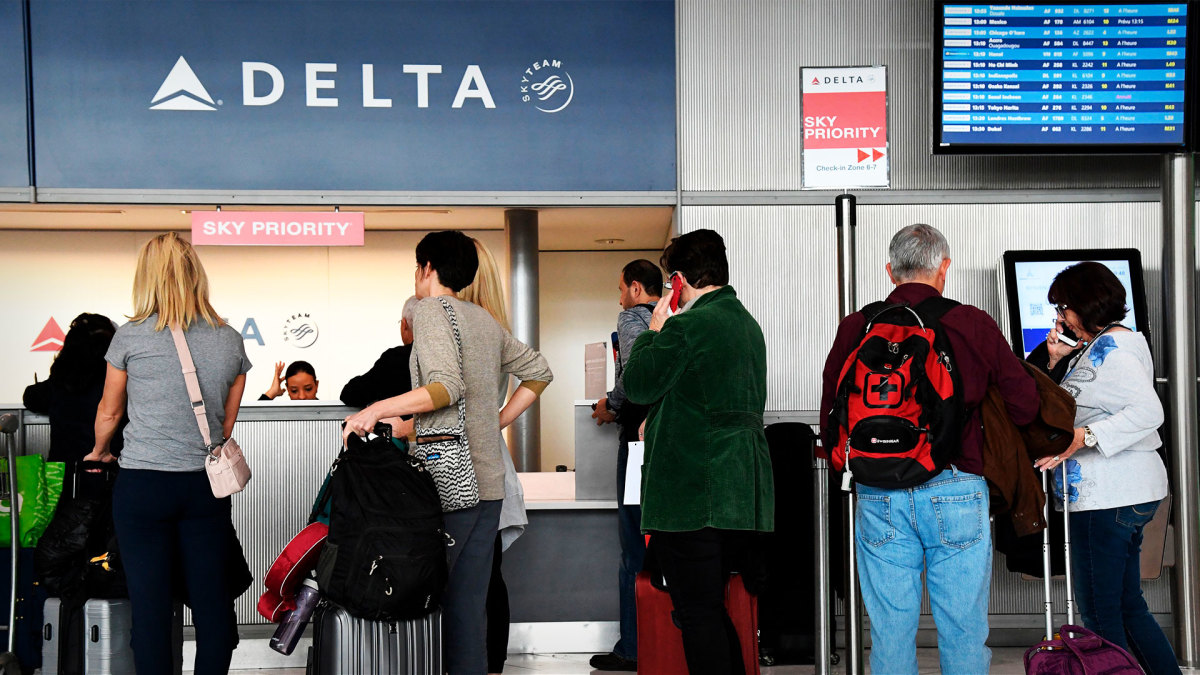Air travel remains one of the safest modes of transportation, but a series of events in recent months has raised new concerns about just how many problems have been developing aboard commercial aircraft.
Devastating disasters have included a midair collision that resulted in 67 deaths in an incident near Washington, D.C., as well as a large number of frightening incidents that have led to emergency landings or to planes turning around and being diverted from their destinations.
💵💰Don’t miss the move: Subscribe to TheStreet’s free daily newsletter 💰💵
This includes a JetBlue flight that ended up veering off the taxiway while attempting to depart Orlando airport recently, as well as a Delta Airlines jet flipping over when it landed at the Toronto airport in February of this year.
Now, there is yet another aviation incident to add to the list. A Delta Airlines flight that was en route to Fort Lauderdale unexpectedly had to divert and land early, and at a different airport. Delta Flight 1334 ended up landing at around 8:30 a.m. at Southwest Florida International Airport in Fort Myers instead of its intended destination.
While it is fortunate that no one was hurt, it is very likely that this scary experience could cause Delta Airlines to put a new policy in place to prevent similar disasters in the future.
It’s a policy that Southwest Airlines already embraced, and with which not just Delta, but also many other airlines, are now likely to get on board.
 Delta Airlines needs a new safety rule after a fire aboard a plane.
Delta Airlines needs a new safety rule after a fire aboard a plane.
Image source: Guay/AFP via Getty Images
Delta Airlines may take a page from Southwest’s playbook after disaster on board
The Delta Flight ended up having to land unexpectedly because a fire broke out mid-flight. The airline explained in a statement that the fire occurred when a portable battery charger that a customer had brought aboard exploded and burst into flames.
While flight attendants were able to put out the fire and no one was hurt, the airplane still had to make an unexpected early landing as a result of the fact that smoke lingered on board.
Related: Delta flight makes emergency landing after terrifying incident
The lithium-ion battery was the clear issue that led to the disruption, and it has raised very serious questions about airline policies surrounding these devices.
Delta currently has rules in place surrounding portable charging devices, including requiring that devices powered by fuel cell systems be transported in carry-on bags and not placed in checked luggage. The airline also limits passengers to two spare fuel cell cartridges per person.
Delta’s policy mirrors recently announced TSA rules against placing lithium power banks in checked bags. However, as this frightening incident shows, it may not go far enough in protecting passengers from the threat of serious harm.
Southwest has industry-leading safety rules surrounding lithium-ion batteries
Southwest has taken a stricter stance than Delta and other U.S.-based carriers in terms of its policies surrounding lithium-ion batteries.
Specifically, earlier this year, the carrier announced that “Southwest will introduce a first-in-industry safety policy on May 28 requiring customers to keep portable charging devices visible while in use during flight. Using portable charging devices while stored in a bag or overhead bin will no longer be permitted. Nothing is more important to Southwest than the safety of its customers and employees.”
Related: Southwest Airlines cancels hundreds of flights from July to Sept.
By requiring passengers to keep these devices out in the open, Southwest provides more opportunity for passengers and flight attendants to act quickly when a problem arises.
In fact, the hope is that those on board can deal with the potential threat of the battery before the explosion happens or leads to so much smoke that the plane must be diverted.
More on travel:
- U.S. government issues serious warning for cruise passengers
- Delta Air Lines makes a baggage change that travelers will like
- United Airlines passenger incident triggers quick response
With the latest Delta incident surrounding one of these batteries, it would not come as a surprise if this carrier, and many others in the U.S., implement a rule change sooner rather than later to help improve the safety of every passenger on board.
Related: Veteran fund manager unveils eye-popping S&P 500 forecast
